Archaeology
-
 Archaeology
ArchaeologyÖtzi loaded up on fatty food before he died
A new analysis provides a complete picture of what was in Ötzi the Iceman’s stomach when he died.
-
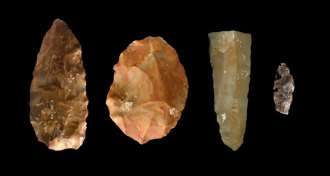 Archaeology
ArchaeologyTexas toolmakers add to the debate over who the first Americans were
Stone toolmakers inhabited Texas more than 16,000 years ago, before Clovis hunters arrived.
By Bruce Bower -
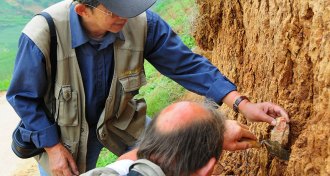 Archaeology
ArchaeologyStone tools put early hominids in China 2.1 million years ago
Newly discovered stone tools in China suggest hominids left Africa 250,000 years earlier than we thought.
By Bruce Bower -
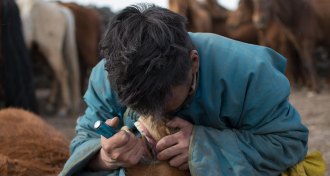 Archaeology
ArchaeologyMongolians practiced horse dentistry as early as 3,200 years ago
Horse dentistry got an early start among Bronze Age Mongolian herders.
By Bruce Bower -
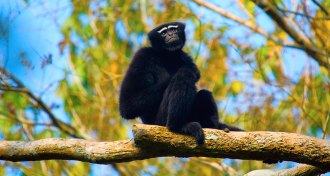 Anthropology
AnthropologyA 2,200-year-old Chinese tomb held a new gibbon species, now extinct
Researchers have discovered a new gibbon species in an ancient royal Chinese tomb. It's already extinct.
By Bruce Bower -
 Astronomy
AstronomyReaders were curious about pendulum saws, laser tweezers and more
Readers had questions about Bronze Age pendulum saws, dark matter, lazer tweezers and more.
-
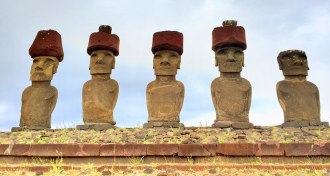 Archaeology
ArchaeologyThis theory suggests few workers were needed to cap Easter Island statues
A small workforce may have put huge stones on the heads of Easter Island statues.
By Bruce Bower -
 Anthropology
AnthropologyAncient Chinese farmers sowed literal seeds of change in Southeast Asia
Two waves of ancient migration from China to Southeast Asia spread farming and languages.
By Bruce Bower -
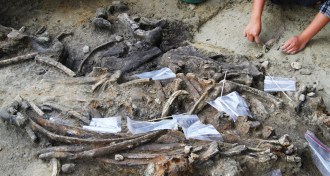 Anthropology
AnthropologyButchered rhino bones place hominids in the Philippines 700,000 years ago
Stone tools and butchery marks point to an ancient hominid presence on islands in the Philippines.
By Bruce Bower -
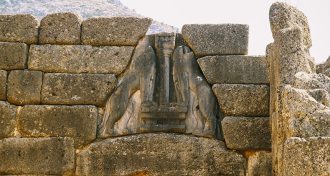 Archaeology
ArchaeologyHow a backyard pendulum saw sliced into a Bronze Age mystery
A saw no one has seen may have built Bronze Age Greek palaces.
By Bruce Bower -
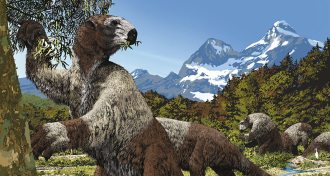 Archaeology
ArchaeologyFootprints prove humans hunted giant sloths during the Ice Age
Footprints of humans and giant sloths show a dramatic chase sequence from more than 10,000 years ago.
By Dan Garisto -
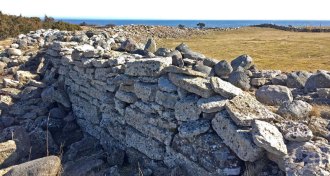 Archaeology
ArchaeologyClues to an Iron Age massacre lie in what the assailants left behind
Ancient Scandinavian massacre may reflect power struggles after Rome’s fall.
By Bruce Bower